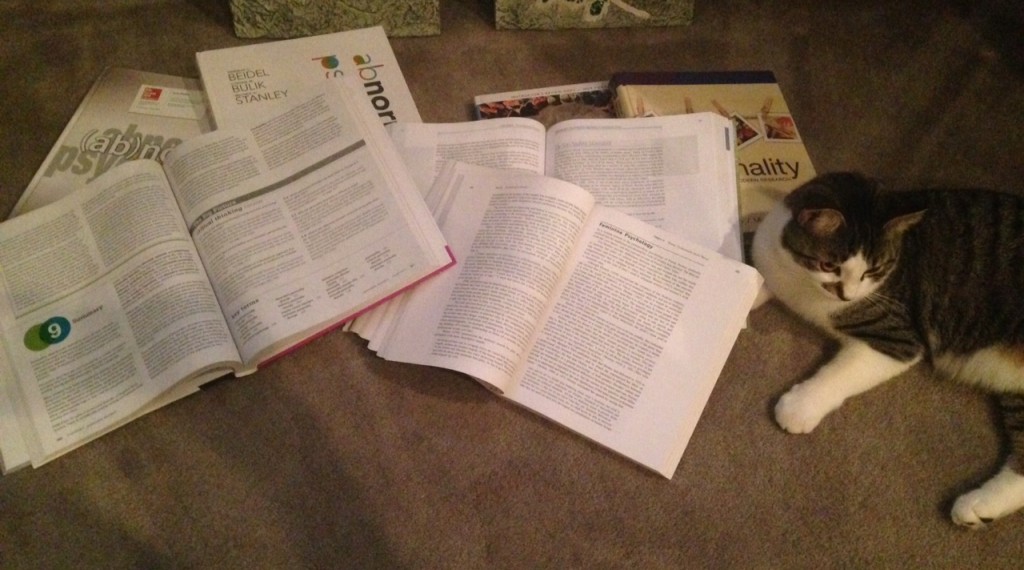
I need to make a decision. I need to make a decision tonight. “Just pick one,” I tell myself. “They both have merits. There are advantages and disadvantages to both. Each choice is going to give me more work to do. Each will push me to learn more.” How do I make a choice when they are a bit like comparing apples and asparagus?
I admit it: I struggle with making decisions. Particularly when they are not that big or life changing. That’s right—I especially struggle with making relatively unimportant decisions. The big ones often seem much easier. This time? I’m trying to pick a textbook for a new course I will be teaching next semester. The two books I’ve narrowed it down to are both fine but approach the topic from a different angle. There is no right textbook or wrong textbook; therefore, no clear right choice.
I have a favorite quote: “Choice is overrated.”
Steven Pearlstein, an economist, wrote an article with this title in the Washington Post in 2004. He argued that while choice is commonly accepted as a good thing in improving the functioning of a free market economy and consumer efficiency, there is a point of diminishing returns. After a while, it has been found, people make more irrational decisions with more choices. Pearlstein cites psychologist Barry Schwartz’s well-known book, “The Paradox of Choice: Why More is Less” noting that we are not happier with more choice but are more likely to second guess ourselves and ruminate on the option(s) we didn’t choose. We are less likely to make a decision, especially a timely one, and often pass up opportunities that benefit us simply because we cannot narrow our choices to make a decision. Schwartz says this is because we become paralyzed by too many options and believe that there is only one optimal, or even right, choice. Other authors have more widely used the term “analysis paralysis”. We all know this one: when our overthinking stymies any action. It is a dangerous place to reside.
I remember observing sometime in my early adulthood while grocery shopping one night, the only product which still came in a singular, pure form was Cheerios. It felt rather comforting that Cheerios were simply Cheerios. But, alas, no more. It seems that the cereal aisle changes frequently with seemingly unlimited choices. As I now stand trying to decide between the various types of granola, Chex, flakes, and, yes, even Cheerios, I have to read labels in an agonizing effort to narrow my options and to determine HOW to make the decision. Should I make it because of the calorie content? Or maybe the grams of sugar. Wait—Maybe I should look at the amount of protein. However I decide, it is clear I can no longer just choose Cheerios—there are now 11 different varieties. Then, I turn around on the aisle: yogurt. Good luck on that one! I seem to just stand in a trance and often end up with something I didn’t intend to choose. (“Why did I end up with no-fat yogurt?”) Or take a look at the cheese. Which type? In a block? Shaved? Shredded? Grated? Low-fat? No-fat? Lactose-free? (Whew!) No wonder people wander bleary-eyed through the store.
There are very few daily decisions that are truly right or wrong and are usually limited to moral decisions—not the typical grist in the everyday mill. Most decisions can be reversed if need be.
While some of those reversals, (such as college major or divorce) may be expensive, both in terms of resources and time, we are generally able to change course if need be. Nonetheless, decisions can be divided as trivial vs. important. At a recent workshop, our new friend, a psychologist from Belgium, Dr. Lieven Migerode, shared a way to determine which are important in the context of a couple: If the issue at hand touches on how you see yourself (who you are), or it touches on how you want your relationship to be (who you are as a couple), or it has to do with your view of the world (how the world is). Everything else is trivial. When it is trivial, he adds, “Take 5 minutes and decide.” This could probably apply well to the grocery dilemma: Just pick one and if you don’t like it, don’t choose that one again. It goes on the “do not buy” mental list. If you do like it, pick it again next time or use the same process another time to make another selection that might also be a future favorite. It’s a rather simplified system, if I do say so myself, but one that preserves time and energy. Time and energy that we can put into other more important things. More marvelous things.
There are many ways to make a decision. Sometimes it is a matter of finding your own system for deciding—like the trial and error system or the label-reading system. There are many ways. You decide what works for you. But keep it reasonable as Lieven advises and then move on.
So, I’m going to pick a textbook now. Maybe I’ll choose the one that looks most interesting to me. After all, it is a trivial issue. I doesn’t change me, my relationship with my students, or how I see the world. If I’m excited about it, the contagion of my enthusiasm will spark the students’ interest too and we’ll have a marvelous learning experience. If it’s a mess…well then, I can always change books.
Make a Decision because Life is Messy and Life is Marvelous.



